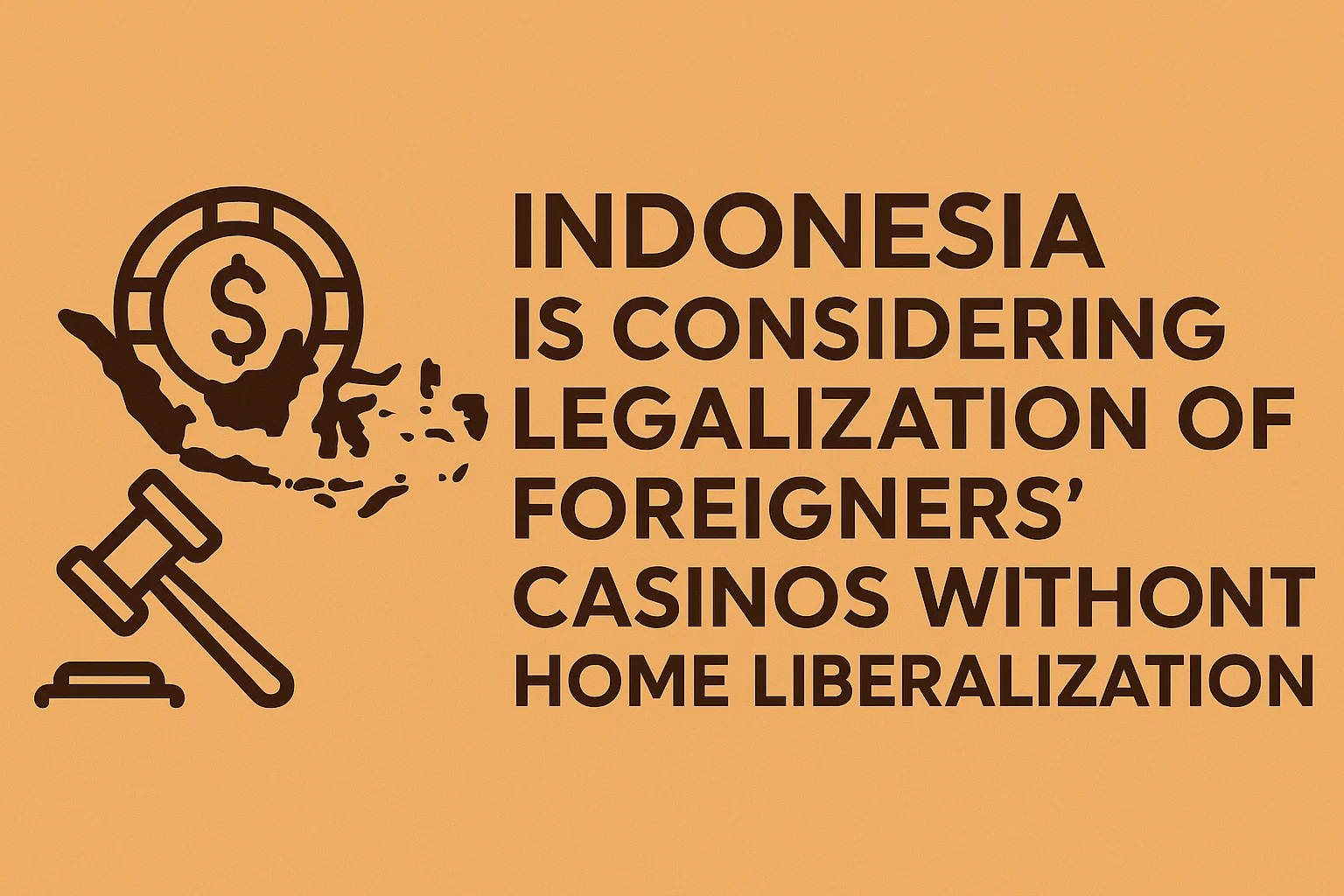Indonesia is Considering Legalization of Foreigners' Casinos Without Home Liberalization

There is a fresh row in Indonesia about the future of its gambling industry: a group of jurists and economists proposed opening a foreign nationals-only casino model following Malaysia, Singapore, and the United Arab Emirates. This proposal comes in the context of a budget deficit, a proliferation of illegal Internet gambling, and the desperate requirement for foreign capital. Negotiations have also been spurred by the popularity of off-shore Indonesian gambling sites beyond the reach of national jurisdiction.
Proposed Model: "Foreigners Only" in Designated Areas
Before diving into potential implications, it's important to note here that the proposal doesn't suggest gambling legalization among Indonesian citizens. Instead, it relies on access separation stringency. In particular, Vidya Ramadhan, an STIE Ekuitas specialist, explained to ANTARA News that a such a framework could:
- Guarantee short-run economic growth;
- Avoid domestic social unrest;
- Serve as a funding vehicle in special economic zones (SEZs).
Some of the most important features of the proposed model are:
- Casinos restricted only within SEZs, such as Bali or Batam;
- Non-residents only access, such as Resorts World Genting in Malaysia;
- SEZ law regulatory framework to avoid the national ban on gambling under criminal law;
- Regulation of access tightly, screening, and exclusion of locals.
This approach may be a compromise between religious-cultural bans and economic goals of the country.
Why the Idea Has Gained Support: Examples, Figures, and Historical Context
In the wake of April parliamentary hearings, the issue was brought into the public eye by MP Galih Kartasasmita.
Galih Kartasasmita: "If the UAE — a country governed by Islamic law — can construct space for gambling, why can't Indonesia look for an economically healthy alternative?"
The proposal has been supported by various experts and invoked historical precedents. Some of the arguments and analogues in favor of the model are:
- Malaysia's Genting ResorWorld generated $2.33 billion — above the overall budget of West Java Province ($2.32 billion);
- The UAE is considering gambling resorts on a "halal" business model that is not contrary to religious legislation;
- Jakarta Governor Ali Sadikin legalized lotteries and casinos in the 1960s for infrastructure finance, facilitating road, school, and hospital construction without foreign loans.
These cases illustrate that gambling can be used as a rational money-management tool, rather than a sign of moral corruption.
The Illegal Internet Gambling Problem Buoys Calls for Action
Strongest among reformers' arguments is the rampant growth of illegal internet casinos in Indonesia, which:
- Are outside the taxing system;
- Provide no protection for users;
- Proactively recruit teenagers via Telegram, TikTok, and other messenger apps.
Potential benefits of a legal land-based element
- Directing a significant proportion of demand away from the black market into a regulated sector;
- Facilitating traceable money flows and anti-money laundering measures;
- Generating direct tax receipts and targeted levies.
Experts opine that a regulated land-based model is a more realistic solution than trying to ban online platforms, which are hard to solve technologically.
Why It Matters
If Indonesia finally opens up "foreigners-only" casinos, it might set up a new high-end gaming hub comparable to Macau or Manila.
For operators and investors:
- 280+ million-strong market with high tourism potential;
- Public-private partnership opportunities for infrastructure projects;
- Direct access to VIP players from China, Singapore, Korea, and Arab countries.
For affiliate marketers and agency networks:
- Monetization potential through offline programs and tourist-driven traffic;
- A platform for Telegram bots, ancillary services, and white-hat promotions;
- Access opportunities via local partnerships with tour companies.
This is not just a specialty—it could be the start of a new type of gambling hub in Southeast Asia, one focused on high-end traffic and international flows.
